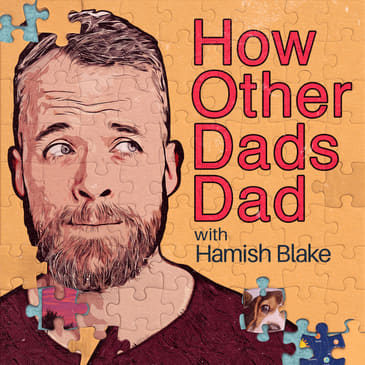He may have played 350 games of AFL - but as Eddie’s wife always reminds him - his job is only just beginning… for his kids, and for his people.
Eddie, with his wife Anna, have 5 young children, so pre-season training pales in comparison to the high contact sport of dadding that many kids. His lunch box game is elite! But as Hame learns in this fascinating chat, for Eddie, supporting a family is linked inextricably with a supportive community. Growing up playing at his grandfather's house, Eddie explains how he began learning his dadding skills from a young age, and how now in the suburbs of Melbourne he is fostering community not only for his kids, but for many of the young indigenous footballers that leave behind their support structures to play AFL. The benefits are huge, and it’s not just because of the extra babysitting!
Eddie might be a dad to 5, but he is also a role model to thousands, and the way he takes it all in his stride with so much grace and humility is pretty inspiring. He’s one of the AFL’s greatest small forwards of all time, kicking 640 goals and receiving Goal of the Year a record 4 times. But since retirement he has turned his energy and passion away from football to become an amazing advocate for indigenous youth, with a special focus on education and creating culturally safe spaces. He has also published two children’s books, My Kind and My People, as part of his Eddie’s Lil’ Homies series, which excitingly looks set to become a TV show on Netflix.
You can find out more about Eddie’s amazing work HERE
—
Big thanks to our Season 2 Sponsor, HERTZ. Just like us, Hertz are all about memory making and adventure - so if you’ve got a trip planned, make sure you head to hertz.com.au/hodd to take advantage of 25% off the base rate. It’s a great deal just for HODD listeners! Ts&Cs apply. See website for details.
—
If you want to get in touch you can drop us a line at howotherdadsdad.com - We really love hearing from you guys!
See omnystudio.com/listener for privacy information.


